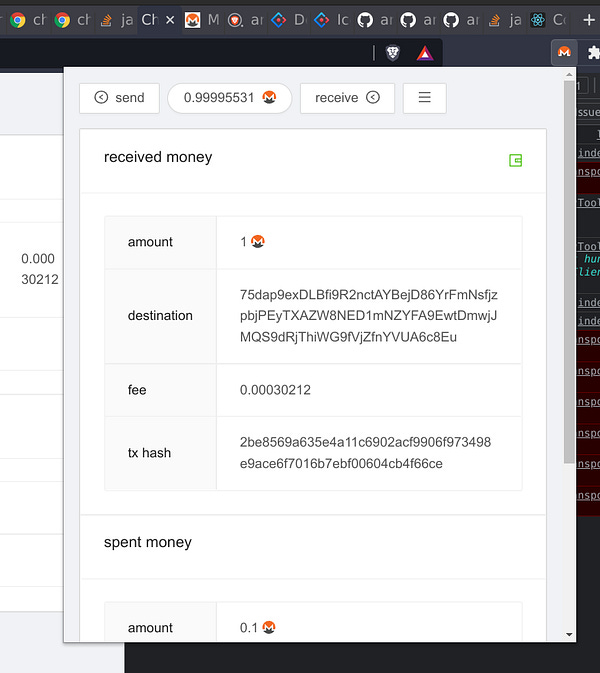solving the web3 privacy problem ...
What is web3?
Most of the innovation in web3 so far happened on the client side. It can be boiled down to Metamask (and more recently Brave) adding new functionality to the web browser.
There is so much noise because everyone wants to claim the term “web3” for themselves. But if we tune out this noise we can see a clear trend: Browser wallets. Metamask has 30 million monthly active users and Brave 50 million. Metamask opened a door to do new things by introducing a new UI paradigm: let any website trigger actions in your wallet, that directly lives in the browser. This makes everything so much more convenient: You can login to websites and send money by just clicking “yes I approve”. No need to copy addresses or fill in forms.
How does it damage your privacy?
But obviously there is a downside to this:
Most cryptocurrencies disclose all transactions unencrypted to the public. For example if you use your Ethereum address to log into a website, this website will know every transaction you ever made.
This is like showing a gym membership card at the entrance of a gym and disclosing all the financial transactions you ever made in the process of that.
How do we fix it?
I work on a Monero browser wallet, because I dont want all my transactions to be visible to everyone, but I still want the convenience of logging into websites and paying for things with one click.


The amount and destination you can see here in the transactions list of my wallet is only visible to me. (and now to you because you saw the screenshot of it 😅) All of this information is encrypted by Monero before it is published to the blockchain.


Monero transactions also cant be linked together, so this problem is basically solved just by building on Monero. One wallet can have many many throwaway addresses, so there is no need to manage multiple wallets.
What about NFTs, bro?
I recorded a short video to explain the NFT features that I built into the monero browser wallet. Have a look:
On twitter someone wrote this very reasonable response:

We can go about it both ways. We can put the info in tx_extra and make it resalable as well. We could make transaction based smart contracts. But I want to go with the membership usecase first. It is easier to implement and easier to stomach for the Monero community.😅 In this “membership” or “ticket” NFT usecase you have to trust the issuer anyhow, so it is unclear to me where the value is in keeping this info public. Some more thoughts on this:



It seems like others look at this in a similar way (we sent the reply at the same time 😅) :


A rug pull is a rug pull I guess …